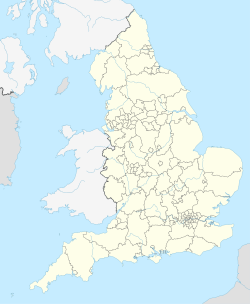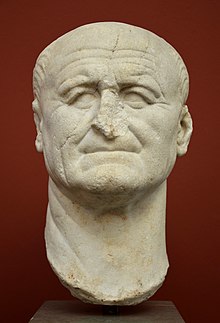43 ⟶ Roman Invasion and Conquest of Britain
In 43 AD, Aulus Plautius led a Roman invasion force of 20,00...Year
43
50
⚔️ Roman Invasion and Conquest of Britain
In 43 AD, Aulus Plautius led a Roman invasion force of 20,000 soldiers, including future emperor Vespasian" target="_blank" rel="noopener noreferrer" class="text-blue-600 hover:underline dark:text-gray-300 dark:underline dark:hover:text-gray-100">Vespasian, landing in Kent and defeating British resistance led by Caratacus, with Emperor Claudius later arriving to accept the surrender of eleven British kings and establish Roman rule, with early infrastructure like forts and roads being constructed.⟶

Roman EmpireInvasionMilitary CampaignConquestAncient romeClaudiusVespasianIron Age
 United Kingdom
United Kingdom🐘 Claudius Leads Roman Invasion of Britain, British Kings Surrender
September – Emperor Claudius, who arrives with reinforcements including war elephants, leads the march on Camulodunum (modern Colchester). Eleven British kings, probably including those of the Iceni and Brigantes, submit without a fight. Plautius becomes the first Governor of Roman Britain.⟶

Roman EmpireInvasionMilitary CampaignClaudiusAncient romeBritonsConquestImperialism
 United Kingdom
United Kingdom🛡️ Roman Conquest of Durovernum Cantiacorum
The Romans capture a Brythonic settlement at Kent and rename it Durovernum Cantiacorum (modern Canterbury); and establish a Roman fort to guard the crossing of the Kentish River Stour.⟶

Roman EmpireAncient romeInvasionMilitaryConquestFortification
 United Kingdom
United Kingdom⚔️ Roman Campaign Against the Silures and Founding of Roman Settlements in Britain
In Britain, governor Publius Ostorius Scapula begins his campaign against the recalcitrant Silures of south Wales, who are led by the former Catuvellaunian prince Caratacus. London (Londinium), Exeter (Isca Dumnoniorum), Tripontium (near modern Rugby) and the fort of Manduessedum (near modern Atherstone) are founded (approximate date).⟶

Roman EmpireAncient romeMilitary CampaignConquestSiluresCaratacusFounding of CitiesExpansionIron AgeMilitary History
 United Kingdom
United Kingdom